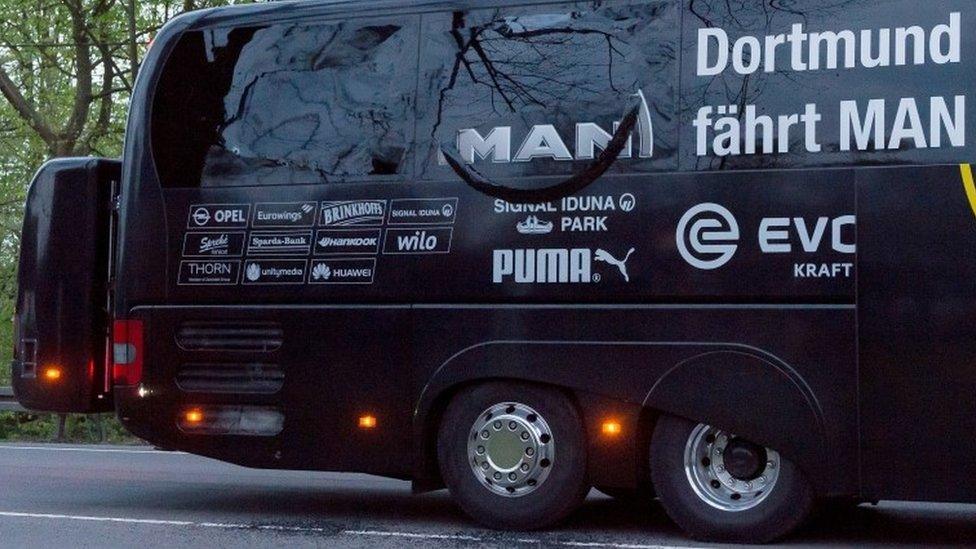Borussia Dortmund bombs: Letters at scene 'not from Islamists'
- Published
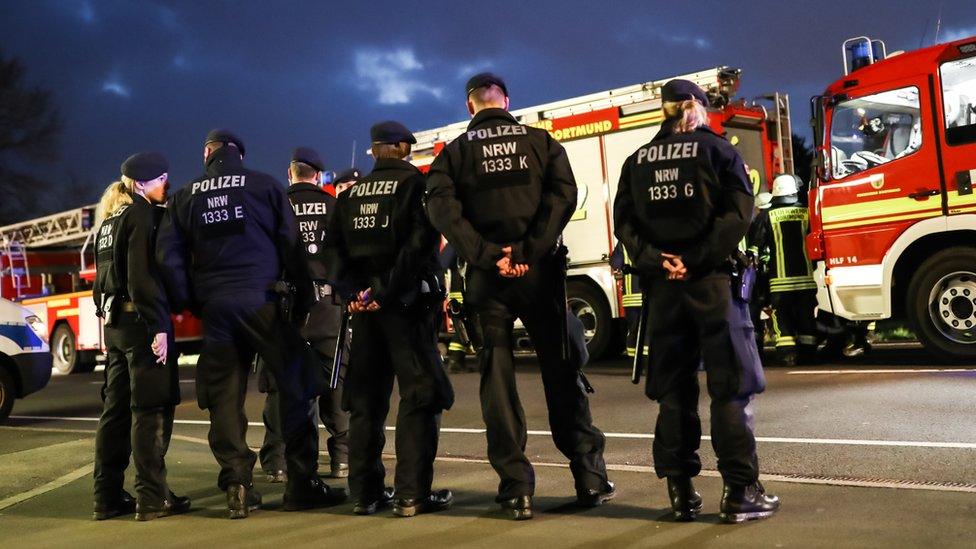
Police guarded the hotel the Borussia Dortmund team were staying in after the attack
Investigators in Germany say there is "significant doubt" that Tuesday's attack on the Borussia Dortmund team bus was the work of radical Islamists.
They say letters found at the scene may be an attempt to trick people into thinking there was an Islamist motive.
But they said it may have been the work of political extremists - from the left or right - or violent football fans.
Two people received medical treatment after three bombs exploded near the team bus, shattering glass.
Spanish footballer Marc Bartra underwent wrist surgery and a police officer was treated for shock.
Following the attack, Borussia Dortmund's Champion's League match against Monaco was rescheduled a day later, which led Dortmund fans to open their doors to stranded away supporters.
On Wednesday, a 25-year-old Iraqi "with Islamist links" was arrested.
But the three identical letters found near the scene - which said the attack was done "in the name of Allah" - may be fakes, intended to pin the blame on radical Islamists.
The developments came to light when two German state broadcasters - NDR and WDR - together with the Süddeutsche Zeitung newspaper reported the study on Friday.
When asked to comment, state prosecutor Frauke Köhler agreed the media reports were "accurate".
They highlight that "many things" from the letters are "untypical" for groups like so-called Islamic State (IS). These include a claim that sportspeople and other famous figures were in danger unless the Ramstein Air Base is closed and German warplanes withdrew from Syria.
IS normally does not negotiate in such a way, Ms Köhler added.
The Ramstein Air Base in southern Germany is a US base and a centre of drone operations.
Anonymous security experts quoted in the Süddeutsche piece, external (in German) say the text of the letters was likely written by a native German speaker who built in mistakes to make it look like it was written by someone for whom German was their second language.
Investigators were still not clear about what kind of attacker might have wished to frame Islamists for an attack, but said the explosives used in the attack were professionally-made.
And another German newspaper, Tagesspiegel, said it had received an email from someone with right-wing motives, who said the attack was a warning and made racist threats.
The authorities are taking that email seriously, the newspaper reported.
- Published13 April 2017
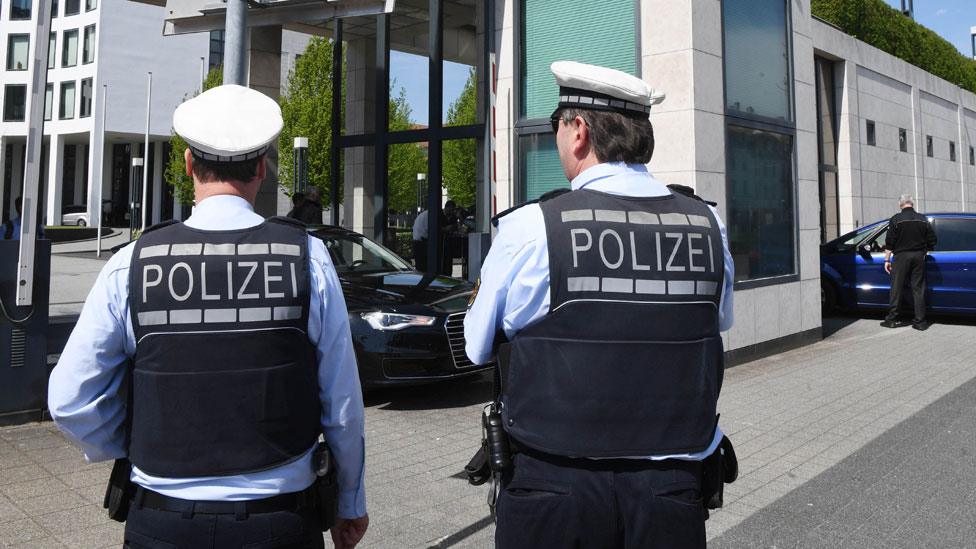
- Published12 April 2017
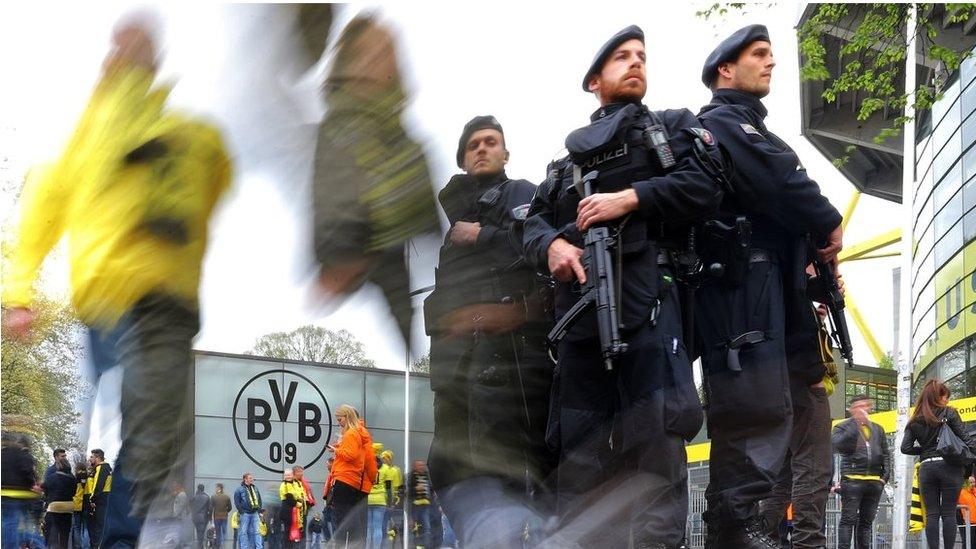
- Published12 April 2017
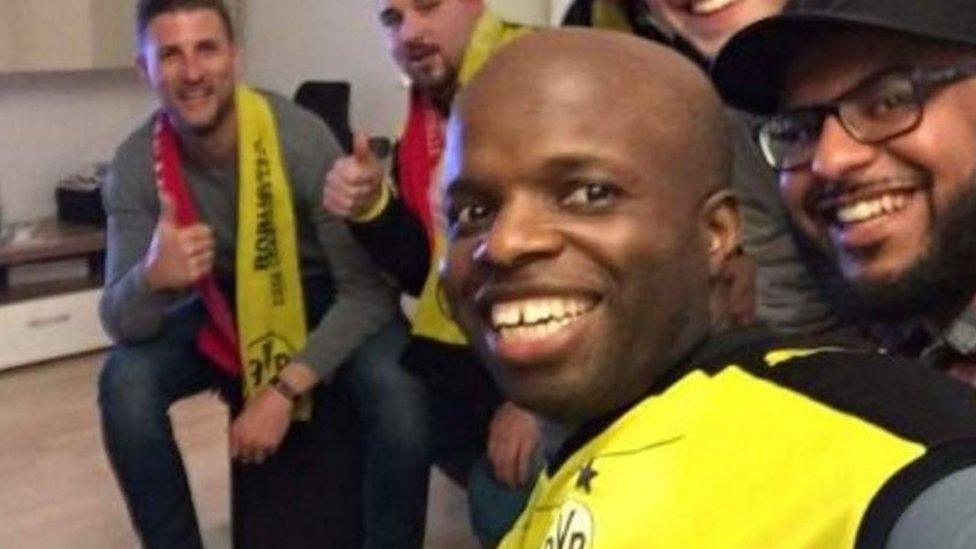
- Attribution
- Published12 April 2017

- Published11 April 2017
